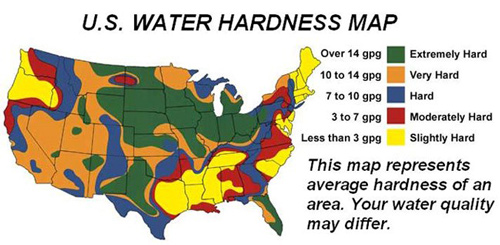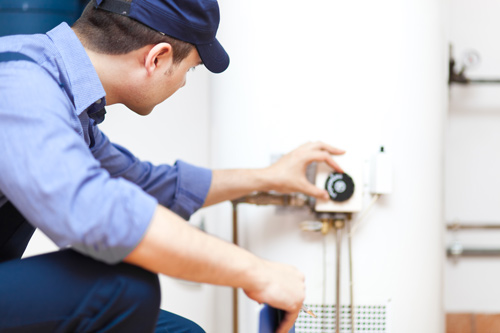As the weather gets colder, ground temperatures are decreasing which can cause the water entering your house to be colder by as much as 25 degrees. This decrease in temperature means your water heater must work harder to deliver hot water to your home or business. Ironically, we naturally make our showers and baths warmer during this time of year to compensate for the cold weather.
Not only do most homeowners depend on hot water for their showers and baths, but they also depend on hot water for laundry, cooking, and cleaning. With multiple people in a household or business using hot water, the hot water heater is working harder and more frequently, accelerating its wear and tear. Hot water is vital to everyday activities, and when a water heater fails, it can negatively impact our daily routines.
Water heaters don’t last forever and eventually, you will see symptoms of your water heater going bad. Fortunately, not all problems mean you will need to completely replace your water heater. Your water heater is comprised of many components like gas control valves, T&P valves, heating coils, anodes, and thermostats. Simply replacing any one of these parts can be enough to keep your water heater functioning properly and efficiently.
5 Telltale Signs That Your Water Heater is Failing
- Water never gets hot: Hot water is vital to our everyday activities, and when our water doesn’t get hot, it can be a major setback. A lack of hot water could mean the water heater thermostat needs adjusted, a specific heating element needs replaced, or the tank you have is too small to accommodate your home or business.
- Water heater is leaking: If you notice a puddle around your water heater, it could mean there is a leak or puncture in the tank. When your water heater heats the water, the tank will expand which in turn can cause leaks to occur. On the other hand, there could be a loose component on your tank that needs to be tightened.
- Water heater is making noise: Sediment often accumulates in your water tank as it ages which will cause the tank to rumble and make noise. When this happens, it is almost always necessary to have your water heater replaced as the sediment hinders efficiency and encourages more damage. Replacing
Compare Drugstore Prices, medicine no prescription non prescription viagra Safe Online Pharmacies, buy viagra online canada fast Antibiotics no Prescription
your water heater with a model like Atlantic Blue’s ProMax Electric Hot Water Heater is perfect for reducing sediment build-up which allows your water heater to efficiently operate for years.
- Water has a metallic smell on the hot side: When your water smells metallic, it often indicates excessive deposits of iron, zinc, or manganese are present. To remedy this situation, it is best to flush your water heater. You can also have your water tested by calling our certified water testing specialists to restore your water back to normal.
- Water is rusty: Rusty water coming from your water heater either means your tank is rusting on the inside or you have rusty pipes. To test your water heater, it is recommended that you drain your tank a few times. If the water still appears rusty after a few buckets, it is likely you will need to replace your tank.
Contact Us

Common Causes of Water Healing Failing
- Hard Water – During the heating process, natural elements like calcium and magnesium build up and form a rock-like material in your tank. This is hard on your tank causing clogs, shorter life span, and a higher energy bill
- Corrosive Water – Corrosive or aggressive water are water that is below 7.0 pH. Over time this will wear down the pipes and erode the water heater from the inside often affecting the anode, thus causing a metallic smell or rusty water.
When Your Water Heater Fails, Call Atlantic Blue Water Services
Atlantic Blue Water Services has the expertise and tools to ensure your home or business has hot water to successfully function. If you suspect your water heater is failing, call our water heater specialists to thoroughly assess the situation and recommend the appropriate solution. You can reach us at (410) 840-BLUE (2583) or toll-free at (866) 380-BLUE (2583).

